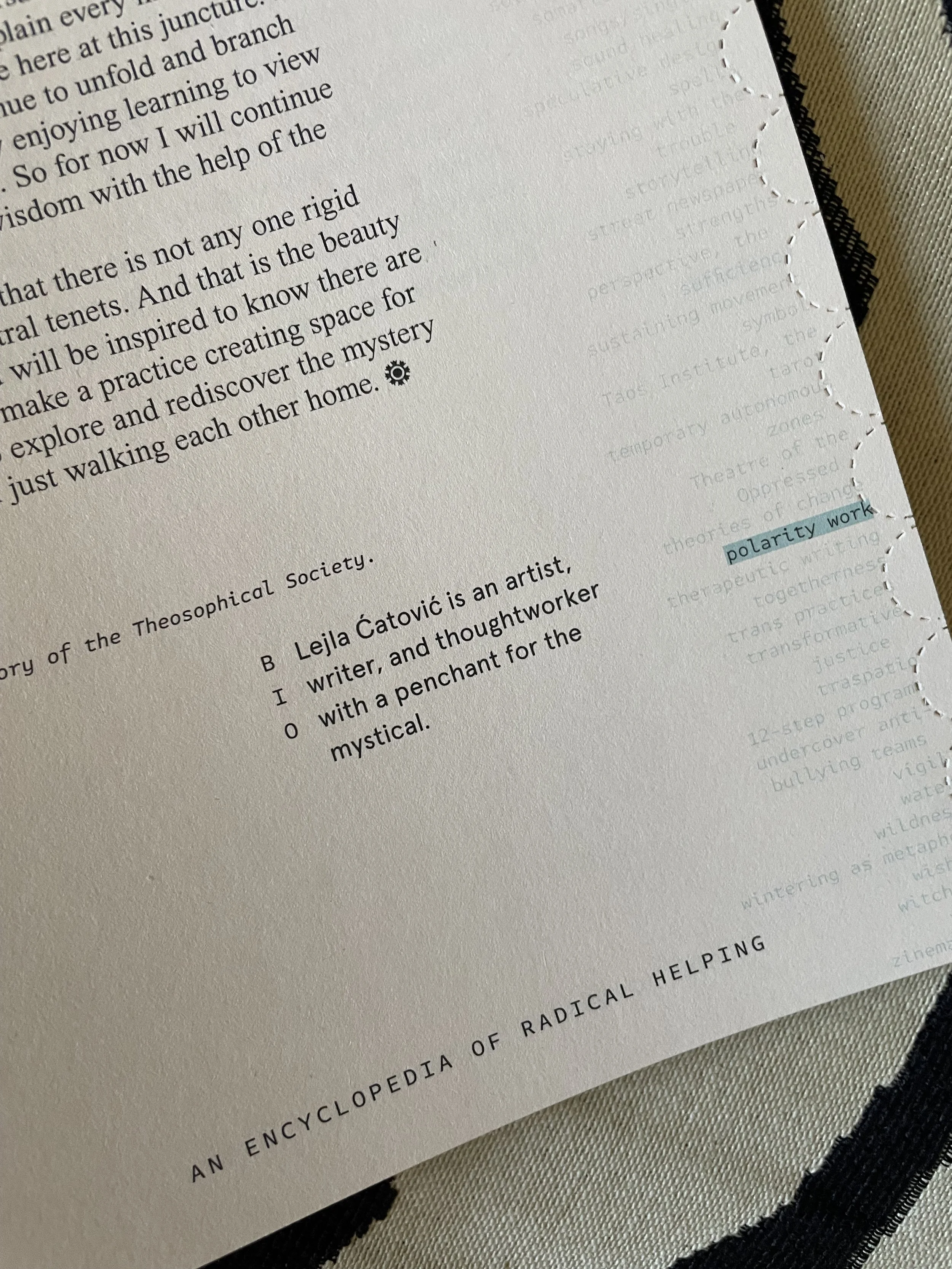On Theosophy
Regarding Theosophy
By Lejla Ćatović
When it comes to questions of religion, philosophy, and theology, an inevitable undercurrent surfaces: tension. But it’s hard to do away with our neatly packed systems of understanding the stark, mysterious, ineffable nature of reality. These systems, so dear to us, have long been woven into the fabric of our societies. And despite the fact that there is a myriad of intricate mosaics, sects and subsects within major belief systems, many schools of thought confidently deem their way the one true way. But this exclusionary system of thinking fosters fragmentation and draws deep divisive lines in the sand.
This way of thinking ultimately lacks a depth of insight that is inclusive of the whole. Consider the intellectual clashes between Aristotle and Socrates, Freud and Jung, or Darwin and Lamarck. Each pairing of thought leaders is fundamentally divided on the nature of the world we live in. The former of each pairing postulates that this material realm is all there is, while the latter acknowledges the existence of an unknown ineffable realm, one that transcends our material existence. Socrates called it the daemon, Jung named it the collective unconscious, and Lamarck gives credence to the power of intention to direct the way creatures (including us) evolve. These thinkers operate from an understanding that simultaneously acknowledges and involves the analytical material side with the intuitive ineffable side.
And while many religions offer navigation to the spiritual realm, they often fall short of including each other. To that end theosophy gives promise because it acknowledges both truth and shortcoming common to each system of religious approach.
What is Theosophy? Etymologically: from the Greek theos (“god”) and sophia (“wisdom”), is generally understood to mean “divine wisdom.” It is a spiritual and philosophical system inspired by many religions and spiritualities.
To be a Theosophist requires only three things. The three central objects of theosophy[3]:
1. To form a nucleus of the Universal Brotherhood of Humanity, without distinction of race,
creed, sex, caste or color.
2. To encourage the study of comparative religion, philosophy and science.
3. To investigate unexplained laws of Nature and the powers latent in man.
I’d also like to include here Dr. Annie Besant’s primary and a secondary meanings for the word Theosophy. In her view the primary meaning has to do with the development of the ability to gain a "direct" personal knowledge of the divine. This aspect is present in the mysticism and esotericism of different religions:
Theosophy is this direct knowledge of God; the search after this is the Mysticism, or
Esotericism, common to all religions, thrown by Theosophy into a scientific form, as in
Hinduism, Buddhism, Roman Catholic Christianity, and Islamic Sufism. Like these, it teaches
in a quite clear and definite way the methods of reaching firsthand knowledge by unfolding
the spiritual consciousness, and by evolving the organs through which that consciousness
can function on our earth – once more, the methods of meditation and of a discipline of
life. [1]
The secondary meaning lies at the level of the basic philosophical and moral teachings shared by different religions:
Theosophy, in a secondary sense–the above being the primary–is the body of doctrine,
obtained by separating the beliefs common to all religions from the peculiarities,
specialities, rites, ceremonies and customs which mark off one religion from another; it
presents these common truths as a consensus of world-beliefs, forming, in their entirety,
the Wisdom-religion, or the Universal Religion, the source from which all separate religions
spring, the trunk of the Tree of Life from which they all branch forth. [2]
In my interpretation, theosophy beckons for a more profound exploration and rediscovery of truths inherent in each system. Its explorations delve into the shared essence permeating the world's religions and spiritualities, with a focus on unity. There is an emphasis on universal spiritual wisdom that transcends singular doctrines and schools of thinking. The mission is to cultivate a broader understanding of the nature of our reality and the interconnectedness of all things.
That is the very thing I had been culturing and cultivating in my private world. Like a platonic theosophist, I was approaching the world through philosophical, scholarly, mystical and religious studies, learning from books on psychology, physics, spirituality, myths, and cross-cultural conversations, syntheses and parallel comparisons. It is impossible to explain every intricacy and nuance of the pathways I explored to arrive here at this juncture. Nor can I predict the ways my path will continue to unfold and branch onward. But I can say that I am currently enjoying learning to view the world through the lens of theosophy. So for now I will continue to seek and explore timeless spiritual wisdom with the help of the elder sages.
Still, I will state for the record that there is not any one rigid definition of Theosophy, save its central tenets. And that is the beauty of it. Perhaps, at the very least, you will be inspired to know there are seekers of arcane knowledge who make a practice creating space for each other, that regularly meet to explore and rediscover the mystery of our reality. After all, we’re all just walking each other home.
